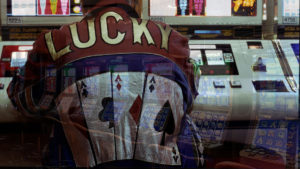 Slot machines blow ‘hot’ and ‘cold’
Slot machines blow ‘hot’ and ‘cold’
No, they don’t. The outcome of each spin of the reels is determined by a random number generator – or, at least, a pseudo-random number generator – and is an independent event, completely unaffected by previous events. The odds of winning are determined by the number of reels, the number of symbols on each reel and the ‘weighting’ of each symbol. Weighting information is usually known only to the casino, but the point is that the odds of winning, say, the jackpot, are exactly the same whether the slot last paid out the jackpot on the previous spin or six months ago.
The longer I play the better my chances of winning
Not so. Each outcome is completely random and independent, so the odds of winning are the same however long you play. In fact, the longer you play, the closer you’ll come to the percentage return-to-player (% RTP) figure for the slot in question. % RTP typically ranges between 85% for offline casinos and 96%, or more, for online casinos, but the inherent house edge actually means that the longer you play the worse your chances of winning.
A percentage return-to-player figure of 92% means I’ll only lose £8 of every £100 I stake
No, it doesn’t. The percentage return-to-player (% RTP) is an average, calculated over infinity – or, in practical terms, the lifetime of the slot – and, as such, does not apply to a single gaming session. In the short term, you could win the jackpot, win a little, lose a little or lose £100 for every £100 you stake, so don’t rely on % RTP as an accurate guide to returns.
Casino staff can ‘loosen’ or ‘tighten’ slot machines
No, they can’t. Whether lower than average, high than average or just plain average, the payout ratio of any slot machine is determined by a microprocessor, pre-programmed at the factory. Casino staff can do nothing to change it, one way or the other.
